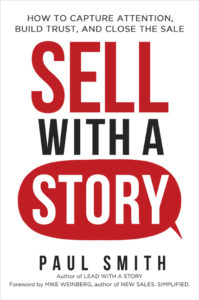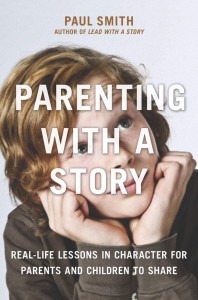Podcast: Play in new window | Download | Embed
Subscribe: RSS
Podcast (parenting-with-a-story-podcast-series): Play in new window | Download | Embed
Subscribe: RSS

Every culture has a code of conduct by which behavior is measured. Some is written in our laws, and we often learn of those expectations in formal schooling. But much is left for subtler forms of influence. We generally learn those from our own gut reaction and from the reaction our behavior elicits from other people.
In his 1902 publication The Seven Cardinal Virtues, Reverend James Stalker describes three schools of justice we use to regulate our behavior: justice of the law, justice of public opinion, and justice of conscience. Interestingly, he describes them in that order as having an increasing degree of strength and impact.
Justice of the Law
Laws govern only a small fraction of our daily behavior, and sometimes with questionable priorities. As Stalker eloquently explains, “The law often strains at a gnat while it swallows a camel.” His example is that if someone were to “defraud his neighbor of a shilling, the law would lay hold of him and set its whole machinery of police, judges, lawyers and prisons in motion for his punishment.
But the same person might, by the arts of temptation carried on for years, make his neighbor’s son a drunkard, or his daughter still worse, and yet escape altogether the notice of the law. That is to say, you may not touch your neighbor’s purse, but you may break his heart with impunity as far as the law of the land is concerned.”
Justice of Public Opinion
That’s where the stricter justice of public opinion comes into play. It fills in those gaping holes left by the law. That same man above who escapes legal scrutiny would certainly suffer being thought a rogue and a reprobate by his friends and neighbors. “He is not fined or imprisoned. But society frowns on him, he loses his character, and the doors through which access is obtained to the pleasures and honors of life are shut in his face.”
In other words, it might be hard for him to find a local company willing to hire him. And he certainly won’t be welcome in the nearby country club or invited to Thanksgiving dinner with the neighbors.
Justice of Conscience
The last and most powerful justice is conscience. It plugs the remaining holes left by both law and public opinion. It works because even the slightest unfair act, which may be unregulated by law and unseen by public opinion, cannot escape the notice of even the most hardened conscience.
Deep inside, we all know the difference between right and wrong. And while none of these three justices can prevent all undesirable behavior, it is this last one that probably prevents most unkind acts from ever being considered in the first place.
These last two justices, though lacking any legal authority, clearly make society a more habitable place. But they can, at times, be at odds with one another. Which means we’re left to consider each and decide what is the right thing to do. Which route is the more just or fair? An interesting example of this is what happens to Bradley every year on July 4th.
Fireworks and Bradley’s dog
Independence Day in the United States is traditionally celebrated with fireworks, commemorating the country’s declaration of independence from the British in 1776. But fireworks can be dangerous to their users and potential fire hazards, and the noise and smoke they cause could be a nuisance to neighbors.
Because of this, today many kinds of fireworks are legally banned inside city limits. But to many, the enforcement of such a ban on even the most harmless firecrackers and bottle rockets would be a bit like enforcing a complete stop at a stop sign in the middle of the night with no traffic for miles in any direction. It would be overkill. Which is why many police officers look the other way on that one night a year when revelers might shoot off a few “illegal” fireworks.
And with two young children growing up in the city who look forward to July 4th every year, Bradley was one of those once-a-year revelers. In fact, most neighborhoods have at least one resident who can be counted on for a few small fireworks each year. The other families tend to congregate in that family’s front yard each Independence Day around dusk just to see the show.
But in Bradley’s neighborhood, there was at least one person who didn’t approve. A curmudgeonly old man in his seventies, Mr. Pease drove around the neighborhood each July 4th admonishing anyone with so much as a firecracker. His reason? “The noise frightens my dog.” And when his pleas didn’t have the desired effect, Mr. Pease called the police.
During Mr. Pease’s visit one year to complain, Bradley picked up his five-year-old son and introduced him. “I’d like you to meet my son. Mr. Pease, when you were his age, did you get to see fireworks on July 4th in your neighborhood?”
“Yes, I suppose I did.”
I did too. And they are wonderful memories. I want my son to grow old with those same wonderful memories you and I enjoy. I understand the fireworks bother your dog. But I wonder if on this one night of the year, for about an hour, you might just take your dog on a walk in the park across town? Or perhaps just go for a drive in your car, all knowing that for the next 364 nights, you won’t hear a peep out of us. And neither will your dog. What do you say?”
Well? What would you do if you were Mr. Pease? Would Bradley’s appeal convince you to drop your complaint? And what if you were Bradley? Don’t you care about Mr. Pease’s dog? And aren’t you a little concerned about somebody getting hurt? Or perhaps one of those bottle rockets going off target and starting a fire in someone’s backyard? And you do realize that it’s against the law, don’t you?
So I’ll leave it to you to discuss. What do the justices of law, public opinion, and your own conscience have to say about this case? And then ask yourself, what would you do?
Have safe and enjoyable 4th of July!
Use these links to subscribe to this podcast on iTunes or Stitcher, or Podbean.
Source: Parenting with a Story: Real-life Lessons in Character for Parents and Children to Share, by Paul Smith.
—
 Paul Smith is one of the world’s leading experts on business storytelling. He’s a keynote speaker, storytelling coach, and bestselling author of the books Lead with a Story, Parenting with a Story, and Sell with a Story.
Paul Smith is one of the world’s leading experts on business storytelling. He’s a keynote speaker, storytelling coach, and bestselling author of the books Lead with a Story, Parenting with a Story, and Sell with a Story.


 Connect with him via email here.
Connect with him via email here.
Follow him on Facebook, LinkedIn, Twitter, and Instagram.
Sign up for his newsletter here to get one new story a week delivered to your inbox.

